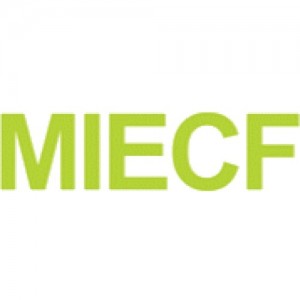Interview by William Chan
Portuguese jazz musician Zé Eduardo recently spoke with The Macau Post Daily about his jazz workshop and the upcoming concert at the Orient Foundation (FO) and his insights into his musical experience in the Greater Bay Area (GBA) as well as his long term engagement in the local jazz scene since as early as 1996.
Last week’s exclusive interview with Eduardo was conducted at the Orient Foundation’s local headquarters, where he is staying during his visit from his home in Portugal. The workshop, which began on July 3, will end this coming Saturday.
Eduardo, a Lisbon native, is a versatile musician, composer, and pedagogue. From founding the Hot Clube de Portugal Jazz School in 1979 to directing Taller de Músics (“Musicians’ Workshop”) in Barcelona from 1983 to 1991, Eduardo has played and recorded with jazz icons like Art Farmer, Steve Lacy, and Kenny Wheeler. In Portugal, he established the Jazz School of Barreiro in 1999 and the Arts School of Sines in 2008, as well as founding the Loulé Jazz Festival and Faro Jazz Festival in 1996. Eduardo also created the Grémio das Músicas Association in 2001, organising international jazz workshops in southern Portugal’s Algarve region’s Tavira and Faro.
Eduardo has been working with the Macau Jazz Promotion Association since 2013, conducting regular workshops and performances. This year marks the 10th session, and he is impressed by the local jazz students’ improvements. “Before the pandemic, I wouldn’t have considered them jazz musicians, as they lacked the groove. However, this year they have improved tremendously, and I am genuinely amazed by them,” he underlined.
Despite the improvements in their musical abilities, Eduardo laments the lack of noticeable growth in the local appreciation of jazz music. “I think one reason is that Chinese culture is still too far removed from jazz. When there’s a gulf between the music and the culture, it becomes even harder to promote less common art forms. Even in Portugal, for example, the government supports the local music culture more than any other genre, including jazz, and it’s the same in Macau,” he said.
Eduardo recalled a popular jazz club in Macau that thrived in the 90s. “I still remember the club tucked away in a dark street, but once you entered, you were immediately immersed in the atmosphere of an authentic jazz club, filled with jazz enthusiasts. It’s a shame that it is closed now,” he noted.
Jazz is most comfortable in clubs or bars, according to Eduardo, who thinks of the vibrant nightlife in Japan, replete with jazz bars and a critical mass of jazz lovers and skilled musicians to support the venues. However, he notes that when jazz takes place on larger, more formal stages in big auditoriums, it often transforms into a social gathering for the elite. “In many formal grand jazz concerts I’ve attended, most of the attendees, who have no connection to the music, come for socialising and vanity. What’s worse is that they often try to instruct you on how to organise jazz events, which I find absurd,” he pointed out.
Other forms of concerts cater to the general public seeking entertainment. Eduardo remembers performing for a crowd at Macau’s Monte Fort, where he arranged a rendition of the famous Chinese song “The Moon Represents My Heart” that earned a standing ovation. Nevertheless, even when performing popular entertainment songs, he strives to infuse his own musicality, rather than mindlessly replicating the original.
Discussing the growth of jazz in the Greater Bay Area, Eduardo expresses admiration for the Golden Jazz institute in Zhuhai. “I attended the Summer Jazz Week workshop at Golden Jazz in July 2019, which featured fascinating jazz masters from around the world. The fee was not cheap, but it offered an excellent opportunity for jazz musicians to elevate their skills.” He noted that the institute employs professional musicians, often holding bachelor’s or even higher degrees in music.
Eduardo frequently performed and taught in Hong Kong until 2016 but found its culture and work ethic ill-suited to his preferences, as everything seemed overly business-orientated. “In Hong Kong, people disappeared immediately after rehearsals, and music events depended heavily on private institutions. Macau is different – we often hang out after rehearsals, and many events receive substantial government subsidies,” Eduardo pointed out.
Nevertheless, Eduardo is deeply concerned about the future of jazz music in Macau. He observes that the government has been reducing subsidies following the COVID-19 pandemic, while Macau lags behind Hong Kong and Zhuhai in music resources. “Macau is one of my favourite places in the world, and I sincerely hope that the local government can continue its policy to support local art industries,” he said.
“Zé Eduardo Jazz Masterclass Presentation Concert” will be held at the Orient Foundation on Saturday at 8 p.m. – admission is free. For more information, visit: facebook.com/100081845700096
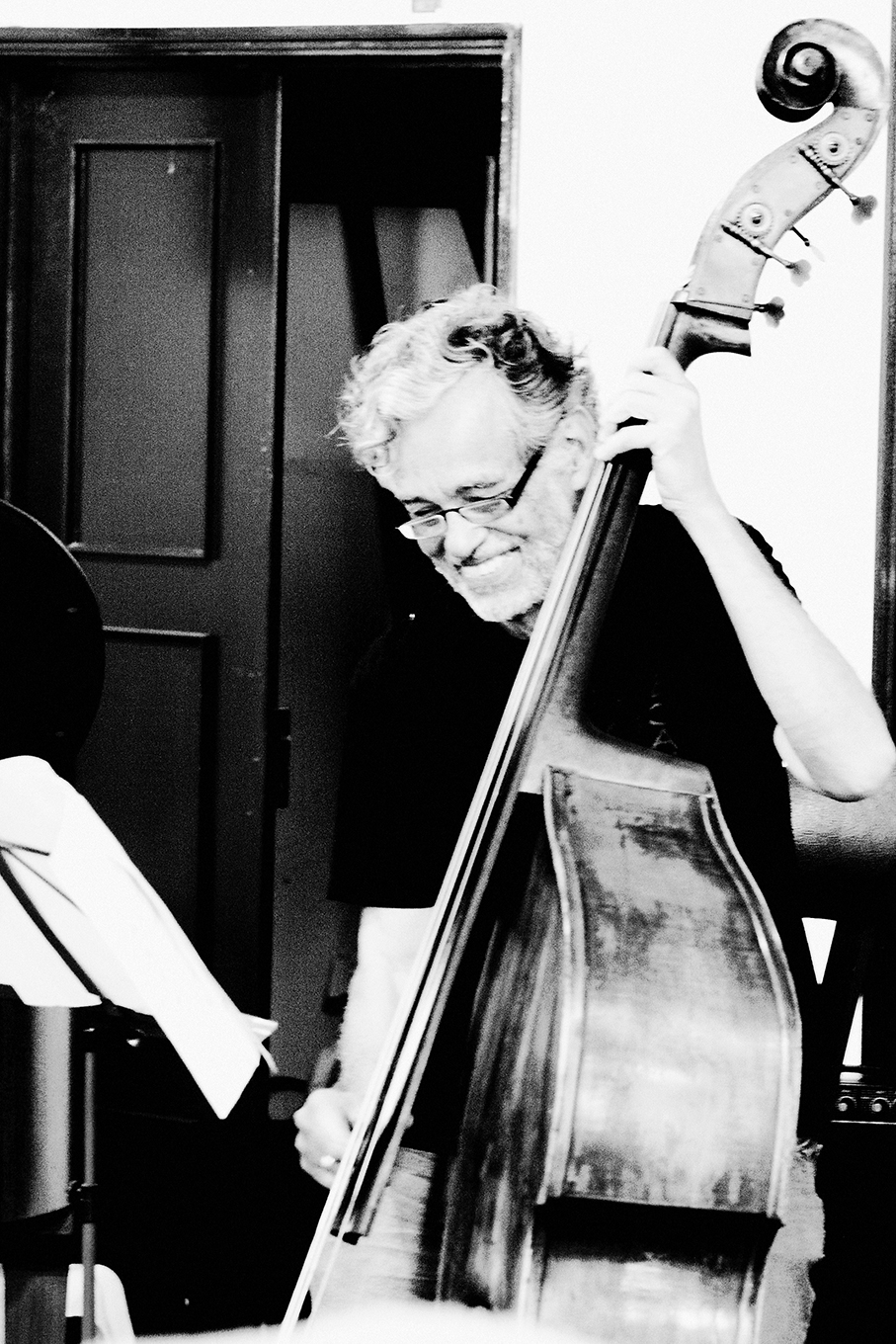
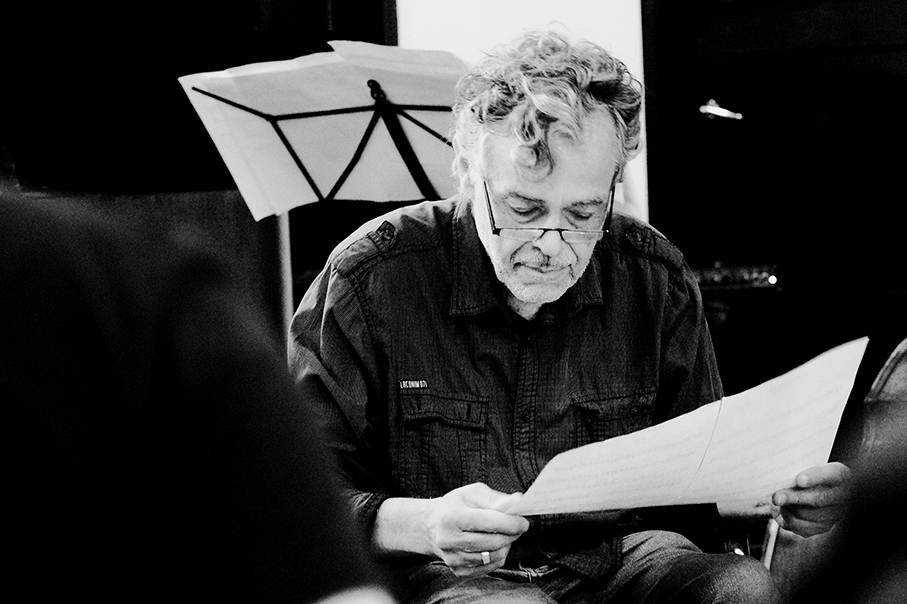
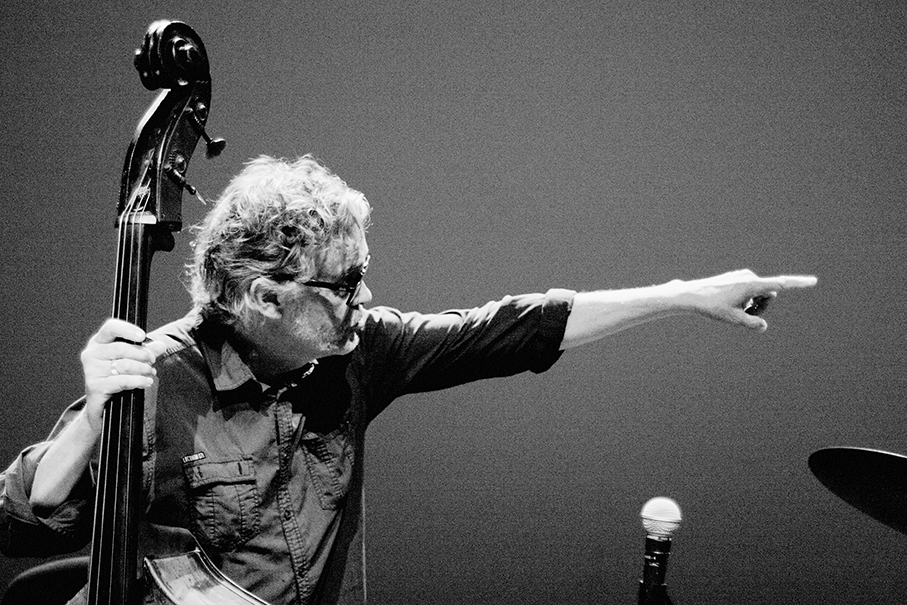
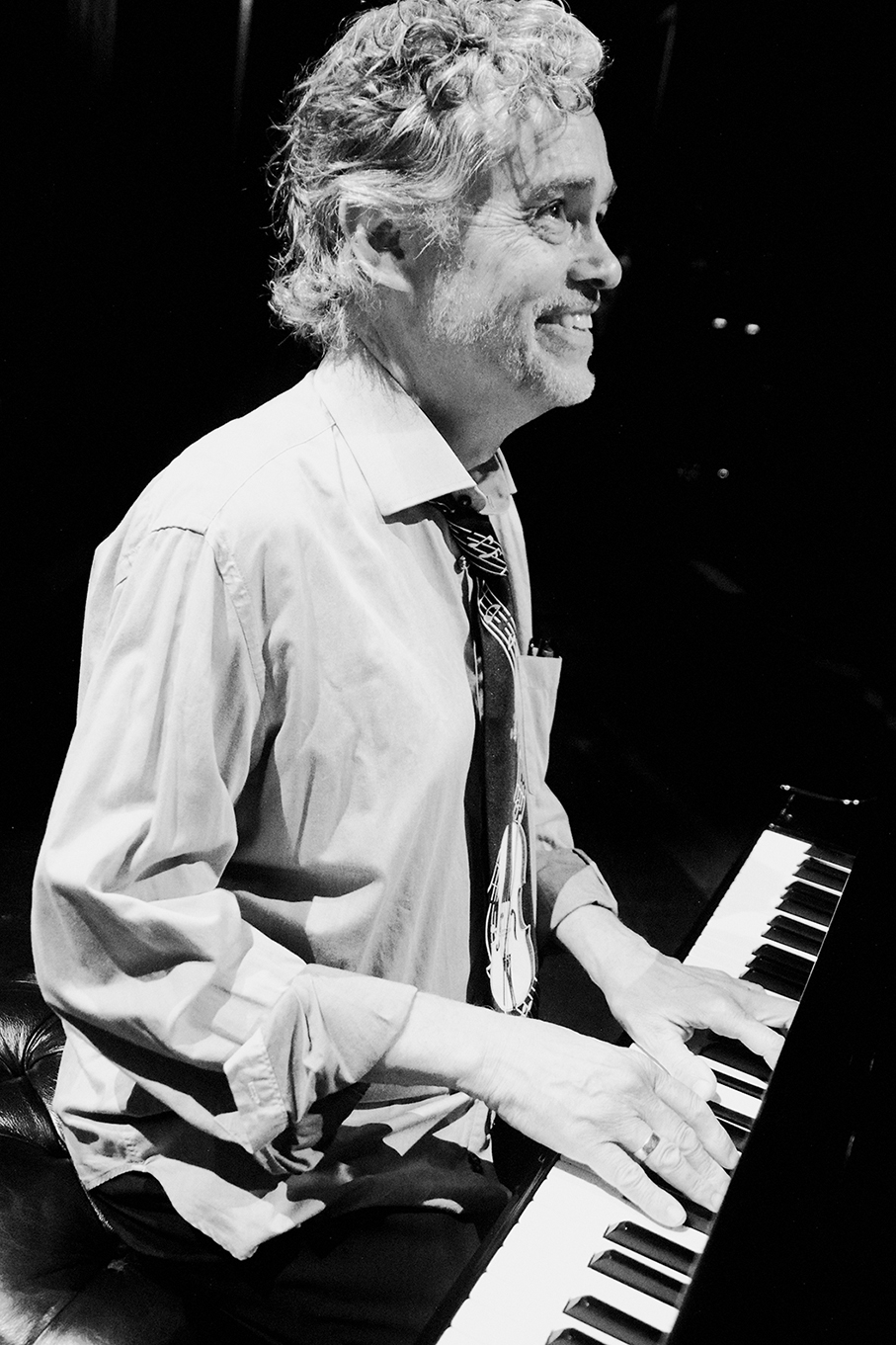
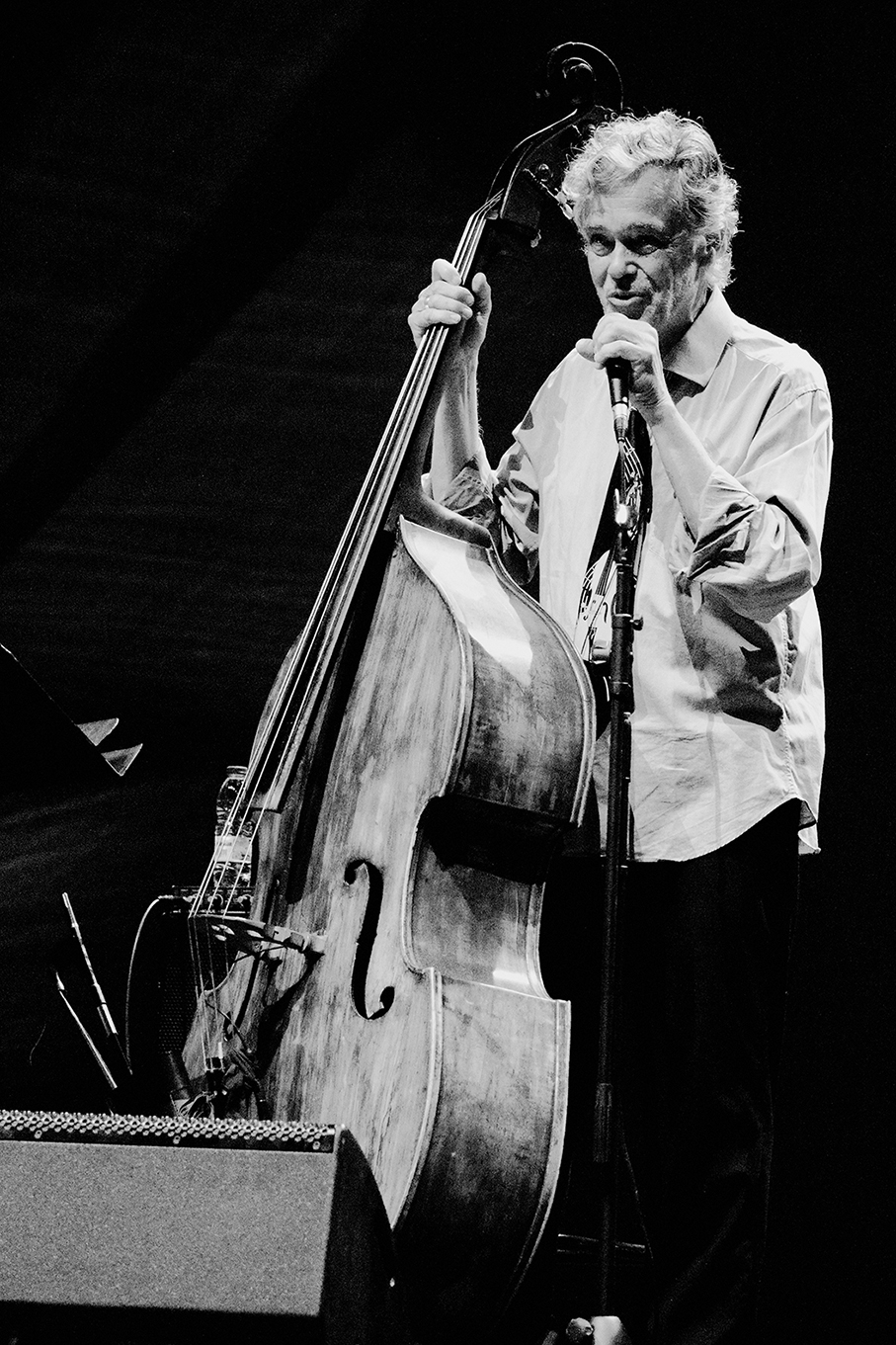
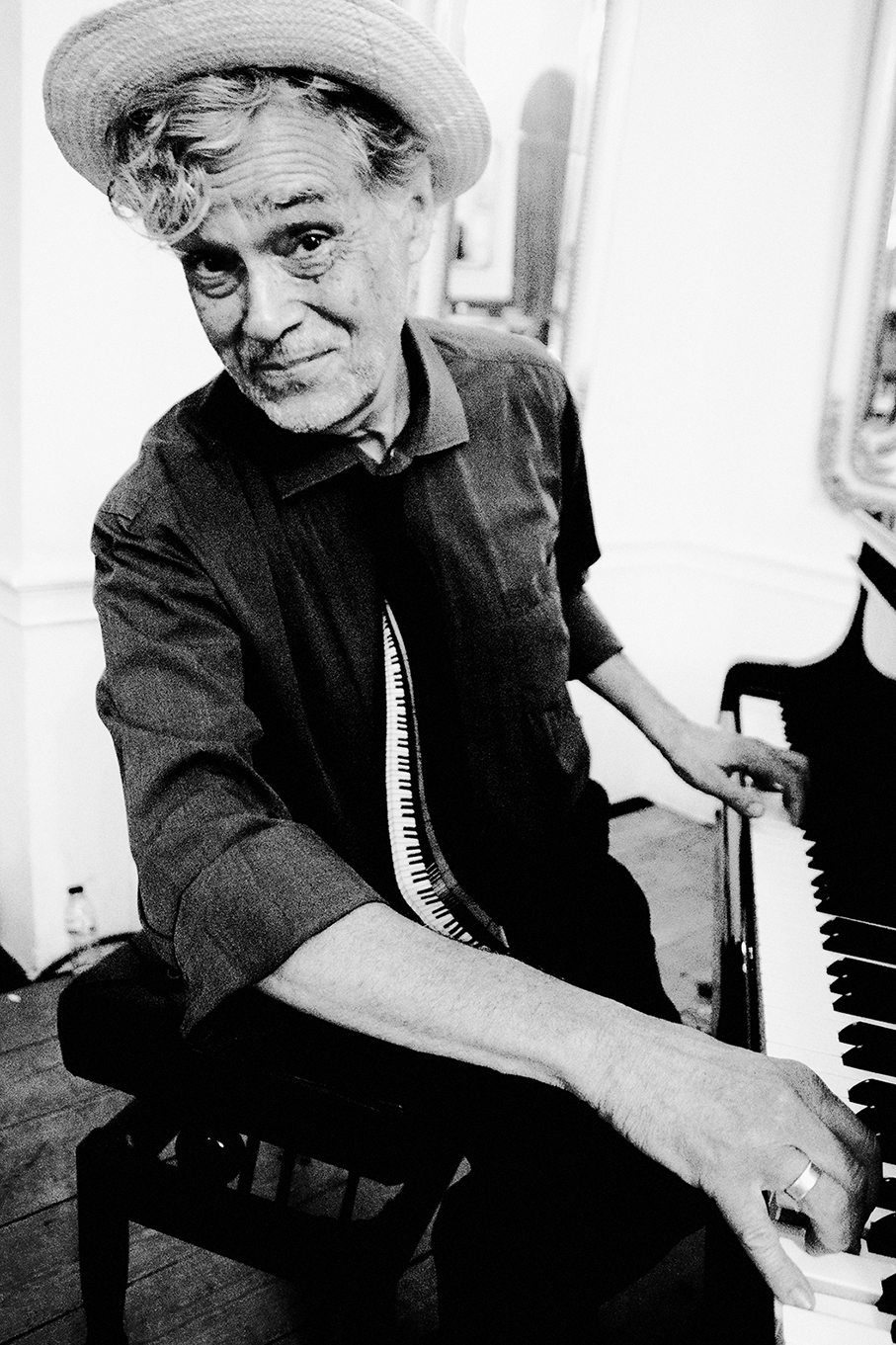
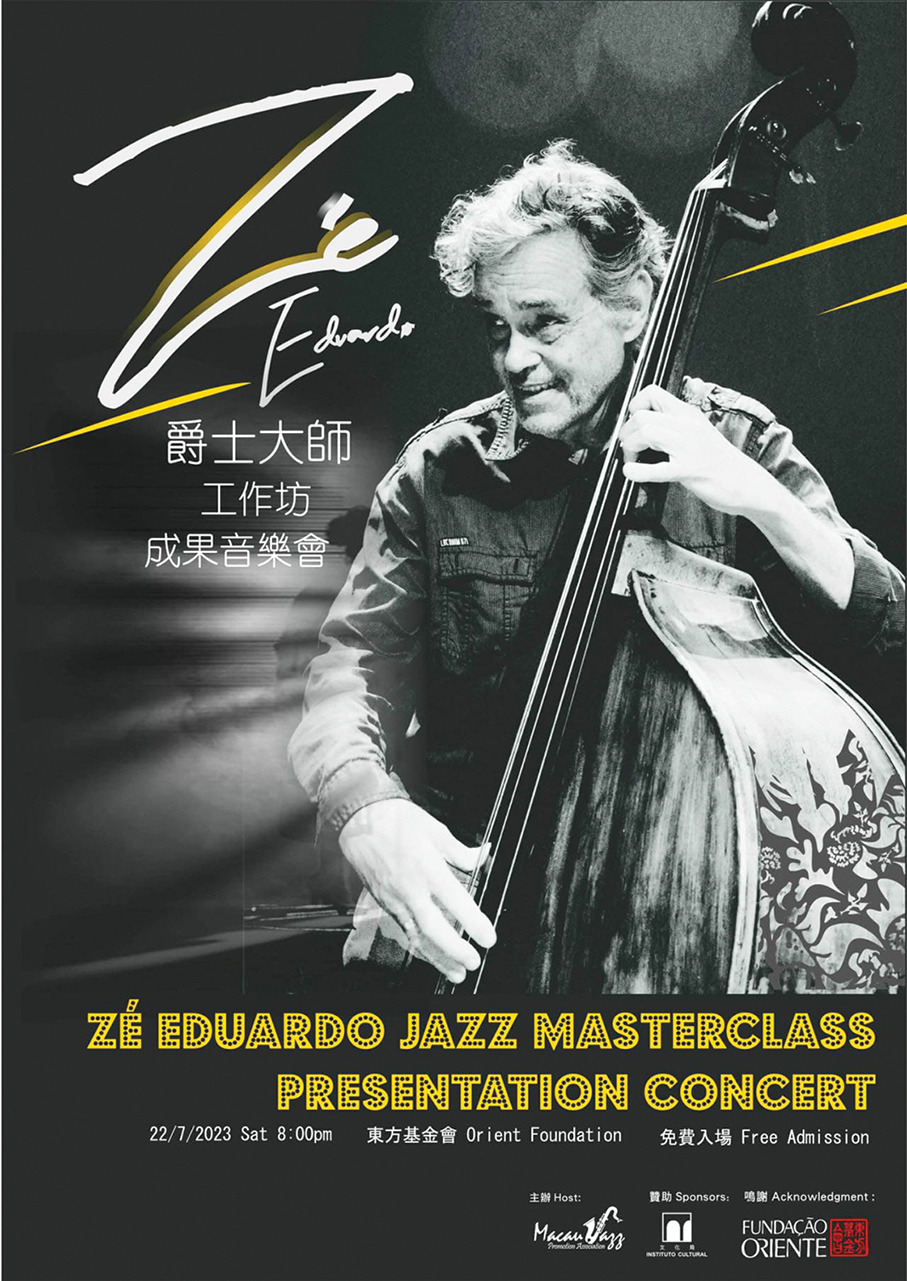
These undated file photos show Zé Eduardo. – Photos: Carlos Pinto
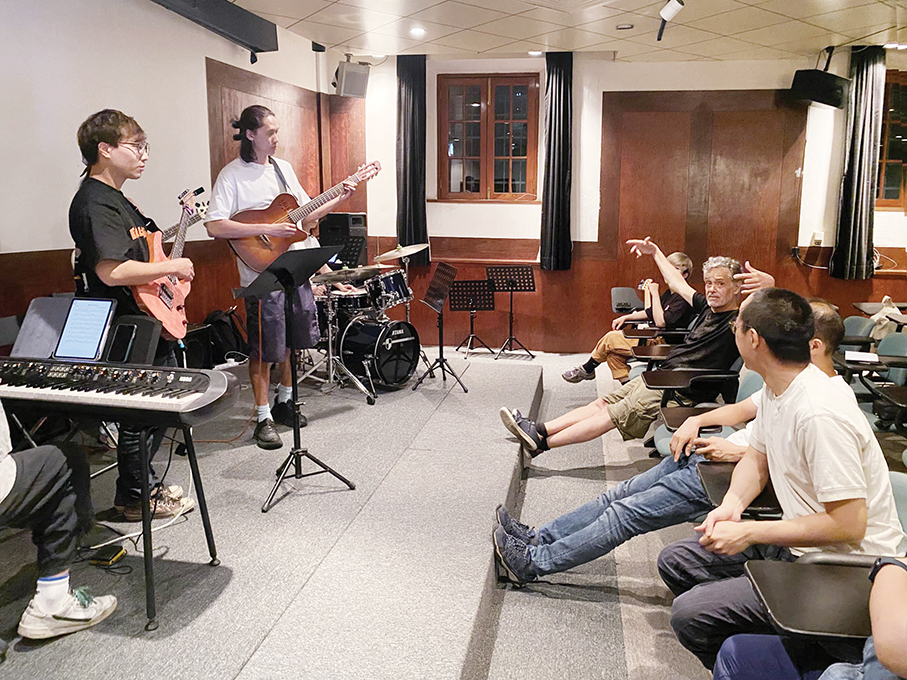
Zé Eduardo shares his musical ideas with local musicians at the Orient Foundation recently. – Photo: Mars Lee
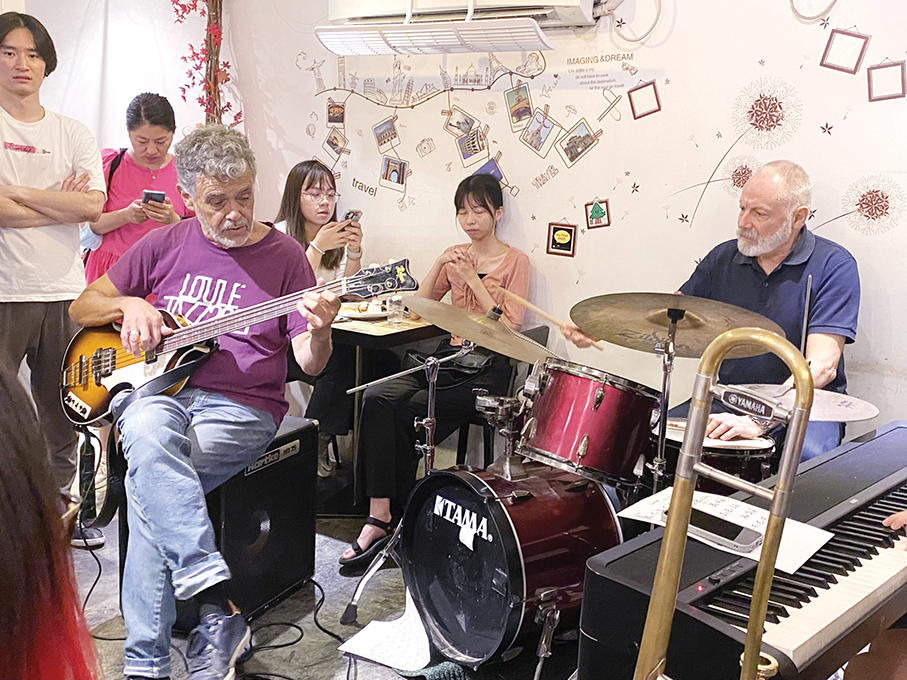
Zé Eduardo plays a bass guitar during a jam session at Wonderwall Coffee near Rua do Campo last week.
– Photo: Mars Lee




